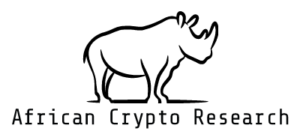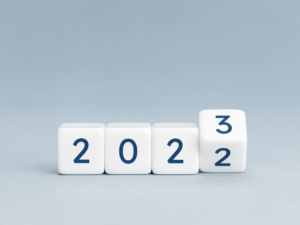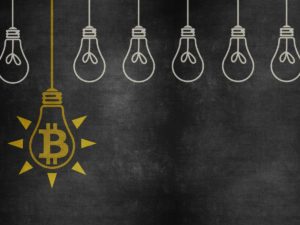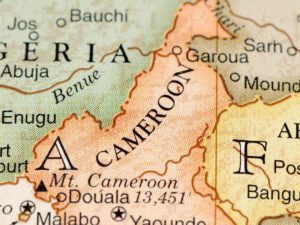Key Points:
- The emergence of Web3 technologies is acting as a catalyst for debate on how the next generation of the internet should look.
- The Web3 debate is about how Web3 technologies can be weaved into the functionality of the internet in a way that realises Web3’s advantages over Web 2.0 while respecting legal frameworks and minimising risks.
- Unlike with the emergence of Web 1.0 and 2.0, Africans are already involved with Web3 while it is still in its nascent stages.
- Given the importance of the internet, Africans should be following developments around Web3 closely and actively discussing the implications for their home jurisdictions.
Why is there a Web3 debate?
There is a big debate brewing regarding the future of the internet. The catalyst for the debate stems from developments that have been unfolding in the blockchain space for over a decade. The terms “Web 3.0” or “Web3” are used to refer to these developments collectively.
In a policy agenda shared with US policy makers in October 2021, American VC firm a16z argued that the current version of the internet – Web 2.0 – has delivered benefits but is also characterised by deep flaws. Some of these flaws include “privacy breaches, disinformation, monopolistic practices and algorithmic biases.”
a16z sees the emergence of Web3 as an opportunity to have a debate about how the internet should work going forward. They argue that the next version of the internet should have the following features:
- Open and inclusive
- Participatory and well-governed
- Distributed and resilient
- Sustainable
- Accountable
- Efficient
- Secure
- Equipped to protect privacy
- Designed to help individuals and communities, not middlemen, capture more of the value they create for society
For a16z, Web3 can help achieve these objectives. The VC firm wants US policy makers to “establish the principles on which the next generation of the internet will be founded.”
What exactly is Web3?
To date, many still view blockchain and its adjacent topics as primarily relating to questions about which forms of digital currency people should use (e.g., Bitcoin vs. Central Bank Digital Currencies).
If one holds this view, it may be somewhat confusing as to how we leap from talking about digital currencies to discussing the next version of the internet.
Web3 is about more than currency. As outlined by a16z, it is the “third generation of the internet” consisting of “a group of technologies that encompasses blockchain, cryptographic protocols, digital assets, decentralized finance, social platforms, NFTs and DAOs.”
(Each of the technologies in the foregoing list deserves its own article. For the sake of brevity, we will save these discussions for future articles.)
As quick background, Web 1.0 (1990 to 2004) functioned similarly to print media in that it was “read-only” with information flowing from the web to its users.
Then came Web 2.0 (2004 to present), which is interactive and social. In addition to users getting information from the web, centralised web applications such as Facebook also collect data from users and utilise it for purposes such as tailored content and targeted advertising.
In contrast, Web3 prioritises decentralisation and its applications incorporate blockchain in their functionality to varying degrees, thus giving rise to features that differ from those we see in non-Web3 applications.
Tying it all together, the Web3 debate is about how Web3 technologies can be weaved into the functionality of the internet in a way that realises Web3’s advantages over Web 2.0 while respecting legal frameworks and minimising risks.
The African Angle
As policy makers in the Global North grapple with Web3, a question that follows is how African legislators, consumers and other stakeholders on the continent should regard these developments.
When Web 1.0 and 2.0 emerged (1990 and 2004, respectively), internet penetration in Africa was extremely low (see chart below).

Furthermore, it wasn’t yet widely understood that the internet would give rise to the tech giants that we see today. In 2021, we have a clear understanding of how crucial a piece of infrastructure the internet is.
Additionally, unlike with Web 1.0 and 2.0, a lot of Africans are already involved with Web3 in its nascent stages. Indeed, as Chainalysis’ research from earlier this year showed, when it comes to peer-to-peer trading of crypto, trading patterns in Africa suggest that it has “some of the highest grassroots adoption in the world.”
As such, the discussions taking place today about how the next stage of the internet should look are of great importance to Africa as well. The outcomes of these discussions will shape how economic activity will unfold on the internet in the coming decades.
As I illustrated in my previous article on digital identity, there are certain challenges that are more pronounced in Africa than in any other parts of the world.
Therefore, if the internet is to be reshaped, Africans should be following these developments closely and actively discussing what the implications of Web3 would be in their home jurisdictions. Of utmost importance is to ensure that Web3 builders who may be unfamiliar with the African context don’t somehow exacerbate existing issues or create additional hurdles.
Finally, if Web3 can truly deliver on capturing more value for network users as advertised, then it represents a significant opportunity for African users. We are already witnessing this phenomenon in the NFT space with African NFT creators effectively exporting NFT art in exchange for foreign currency.
Of course, African creators have always been able to export their art, however, blockchain technology makes it easier for creators to connect and trade directly with collectors abroad. This widens access to the global art market for creators who would typically be unable to establish connections with intermediaries who facilitate sales internationally.
Ultimately, the scale on which Web3 can deliver value to African users remains to be seen. Even within the crypto community, some have expressed scepticism as to whether African users can truly take advantage of Web3 technologies to the fullest extent. They point to Ethereum gas fees which, for a single transaction, can exceed the equivalent of monthly wages for certain segments of the African population.
This is a reasonable objection and one that needs to be addressed if Web3 is to achieve its stated goal of being open and inclusive. Nevertheless, even if Web3 in its current iteration may be out of reach for some Africans, those with access should still get involved in shaping Web3’s development in anticipation of when the technology eventually matures.






